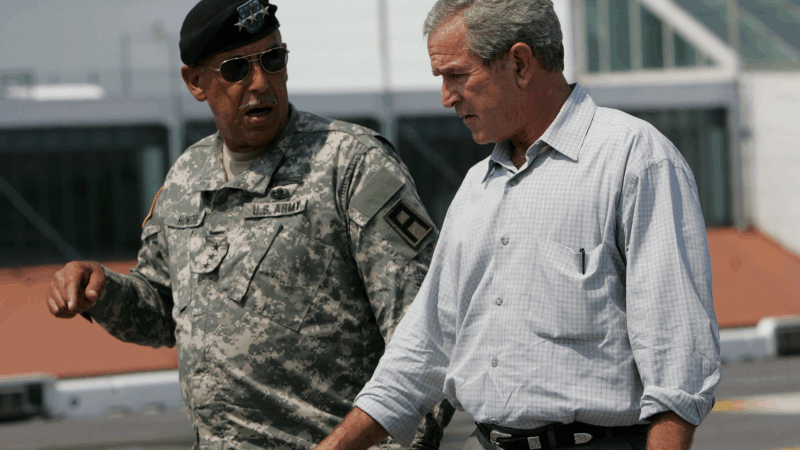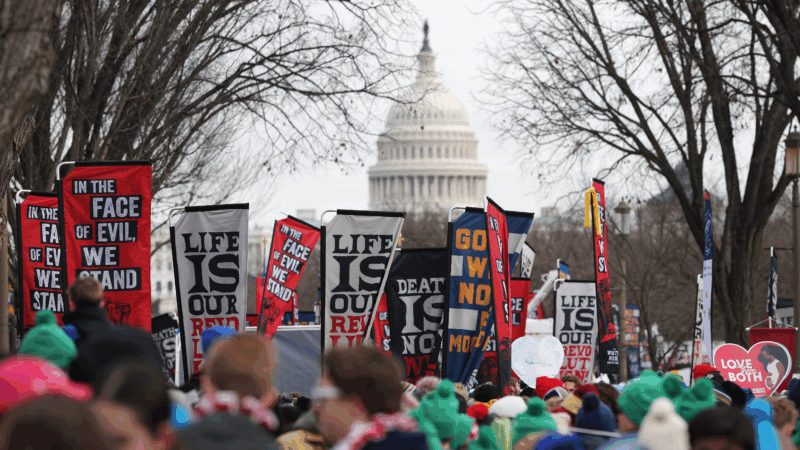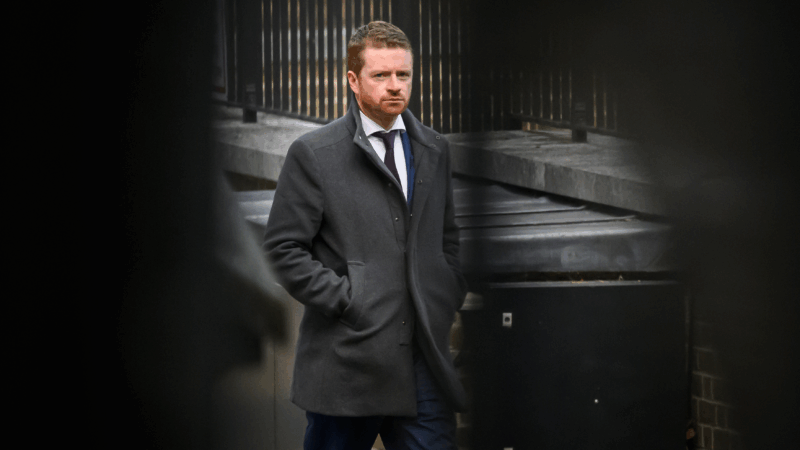A retired general recalls Hurricane Katrina’s chaos and lessons still unlearned
Army Lieutenant General Russel Honoré became a household name in 2005 when he led recovery efforts as commander of Joint Task Force Katrina.
Nearly 20 years later, as storms grow stronger and climate disasters are becoming more frequent, Honoré says the lessons of Hurricane Katrina remain urgent: local leaders fail, warnings can be too late and people without resources are often left behind.
He retired in 2008 but remains an active crisis consultant, advising on flooding, wildfires and even the security failures of the Jan. 6 attack on the Capitol.
As he flew into New Orleans by helicopter on Aug. 31, 2005, Honoré said he had to keep his emotions in check as the faces of thousands of residents came into view. New Orleanians who didn’t have the means to leave the city had gathered at the Superdome, one of the the city’s designated evacuation centers.
“It broke my heart when I saw a lady with a toddler and a shopping basket pushing the baby in the water,” Honoré said in an interview with NPR’s Michel Martin. “The water was up to the baby’s chest and she was trying to get into the Superdome to save [the] baby and herself. And I said, we’ve got to get these people out of here.”
The Superdome was a last refuge for many. And as supplies ran low, it became a symbol of misery.
Before Katrina hit, forecasters warned of catastrophe if people failed to evacuate. But New Orleans Mayor Ray Nagin did not issue a mandatory order until Aug. 28, 2005.
Roughly 20% of the local population stayed behind, most of them being poor and elderly. “They want to stay because they know where the medicine is and many of them lived alone.” Honoré said. In some cases, the system failed them. “The city did send people to pick them up, but at that time, you couldn’t take an animal in an ambulance. And the elderly people said I’m not leaving if I can’t take my dog with me.”
Since Hurricane Katrina, federal law has changed to include shelter for pets.
When the levees broke, more than 240,000 homes flooded in and around the city. State officials prioritized evacuation, food and water. But logistical challenges mounted and people were desperate for basic essentials.
Reports of lawlessness spread, but Honoré said that people confused looting with survival. He criticized how law enforcement responded: “This pre-notion that the poor is going to loot, it’s a sad commentary but it’s built into our culture,” he said. “In some cases, adjacent parishes and municipalities blocked people from coming in because they said these people are going to come and loot our stuff.”
The local, state and federal response to Hurricane Katrina was widely criticized. “The storm overmatched the infrastructure and it overmatched the ability for them to deal with it,” he said.
Honoré was one of the few officials praised for his no-nonsense leadership. He said he hopes people have learned from Katrina.
“Mother Nature can break anything built by man,” he said. “When we get proper warning, we need to evacuate and we need to be prepared to evacuate.”
The audio version of this interview was produced by Lilly Quiroz.
March for Life attendees may have been exposed to measles, DC Health warns
D.C. health officials are contacting people possibly exposed to measles at the March for Life in January, as confirmed cases rise nationwide.
U.S. gave Ukraine and Russia June deadline to reach peace agreement, Zelenskyy says
"The Americans are proposing the parties end the war by the beginning of this summer," Zelenskyy said, speaking to reporters on Friday.
U.K. leader’s chief of staff quits over hiring of Epstein friend as U.S. ambassador
British Prime Minister Keir Starmer's chief of staff resigned Sunday over the furor surrounding the appointment of Peter Mandelson as U.K. ambassador to the U.S. despite his ties to Jeffrey Epstein.
Trump administration lauds plastic surgeons’ statement on trans surgery for minors
A patient who came to regret the top surgery she got as a teen won a $2 million malpractice suit. Then, the American Society of Plastic Surgeons clarified its position that surgery is not recommended for transgender minors.
What you should know about Bad Bunny’s Super Bowl halftime show
Will the Puerto Rican superstar bring out any special guests? Will there be controversy? Here's what you should know about what could be the most significant concert of the year.
Sunday Puzzle: -IUM Pandemonium
NPR's Ayesha Rascoe plays the puzzle with KPBS listener Anthony Baio and Weekend Edition Puzzlemaster Will Shortz.








